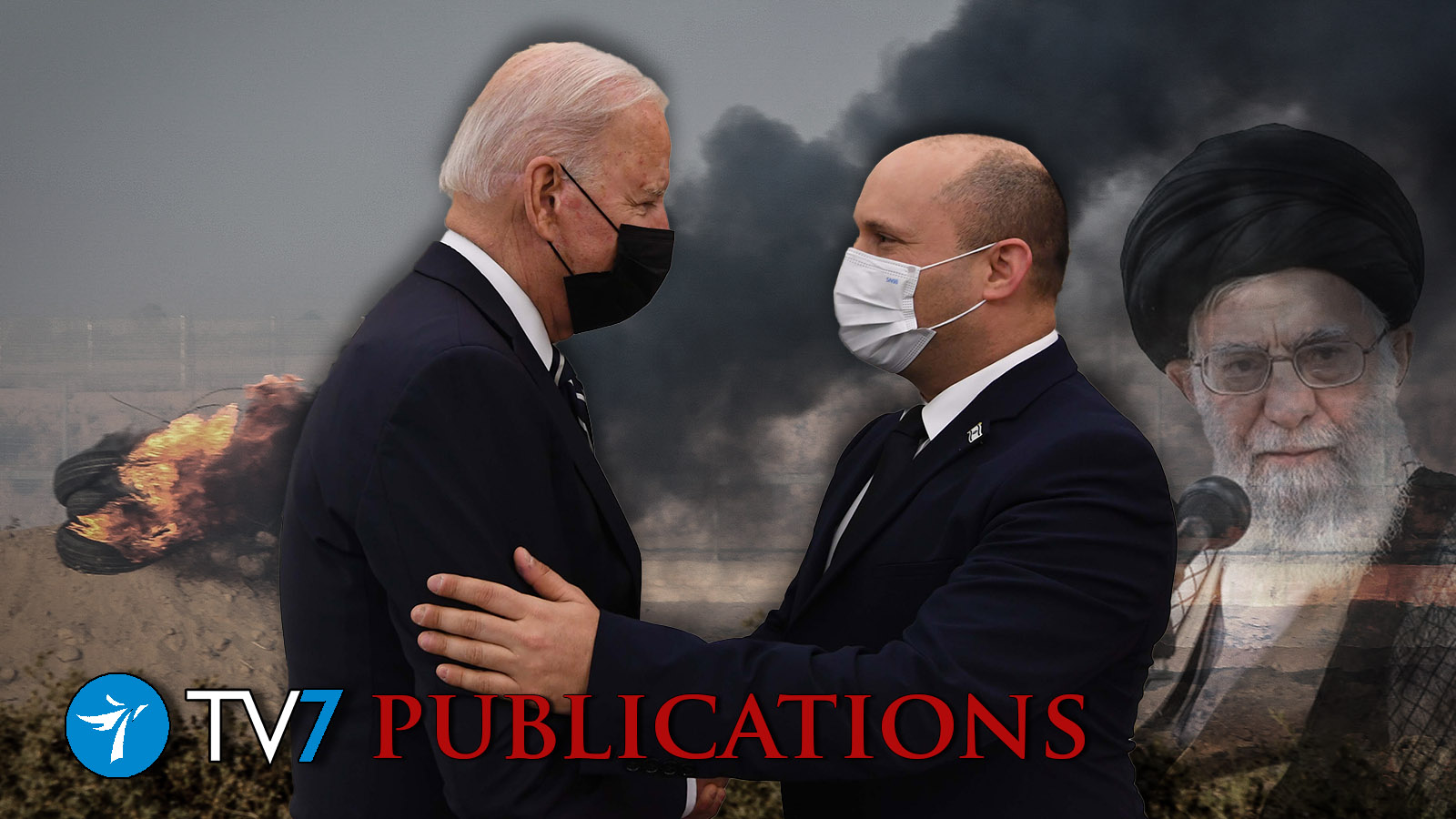By Prof. Efraim Inbar, President of the Jerusalem Institute for Strategy and Security.
Bennett’s mission is to emphasize the American interest in the region and present Israel’s capacity to help in attaining it.
Naftali Bennett’s first visit as Prime Minister to Washington D.C., the capital of Israel’s greatest ally, is a highly significant event. Political commentary has focused on the possibility of the two new leaders forming a personal bond. But this must not be overestimated. At the end of the day, it is state interests as defined by leaders that largely determines what transpires between Washington and Jerusalem.
Iran’s nuclear program is main issue at hand. This is an existential matter for Israel. But the US is going to great lengths to take this matter off the international agenda by having Iran return to the 2015 nuclear agreement. This is a point of dispute between the Biden administration and Israel, which considers the return to the agreement a severe strategic-security problem.
Iran’s delays in returning to talks regarding this agreement may make things easier for the Prime Minister. It is unclear whether the Americans have a backup plan, and at this point, they appear to be at their wits’ end. Israeli Foreign Minister and Alternate Prime Minister Yair Lapid has promised not to “surprise” the Americans regarding Iran, but this is a mistake. – and the Biden administration may be interested in fudging this too, to create a credible military threat to Iran and force it to resume talks in Vienna. To this end, Bennett is likely to see a declaration from President Biden that Israel has the right to defend itself by itself – a declaration that Biden has previously made several times.
Bennett’s primary task is to change the American attitude towards Iran. The US rarely criticizes Iran’s regional behavior, which is aimed at taking over the Persian Gulf and Caspian Sea regions, both of which are energy rich. He should convince the American government, which is currently focused on the Chinese challenge, that Iran is an important part in Chinese moves against the US.
The Chinese economy requires Middle Eastern oil (unlike the US), and therefore the practical meaning of returning to the nuclear agreement is releasing vast amounts of oil for Chinese consumption. Washington also may realize that after the shameful withdrawal from Afghanistan, Iran will have greater freedom to act. Iran will not hesitate to tighten relations with China, which has interests in Afghanistan and the Persian Gulf.
For his part, Biden likely will demand greater deal of sensitivity from Israel in awarding contracts for Israeli infrastructure projects to Chinese companies. It would be prudent for Bennett to acquiesce to this American request and emphasize that Israel only considers China an address for economic relations, while carefully scrutinizing any deal that has strategic implications.
Despite the balance of power being clearly in favor of the world’s largest superpower, recent events in Afghanistan constitute a constraint on Washington in its negotiations with Jerusalem. The Americans now need to rebuild their credibility as reliable allies and therefore they cannot appear to apply too much pressure on their friend – Israel. Moreover, unlike other allies, Israel does not require American forces to defend it. The power of the strong Jewish lobby in the US cannot be dismissed either.
Moreover, Israel is playing a significant role in forging an informal alliance with Arab countries that support the status quo, who stand against Iranian aggression and threatening Turkish ambitions. US withdrawal from most of its strongholds in the Middle East may push these countries closer to Israel, and the Biden administration should encourage this trend within the framework of the Abraham Accords. The alternative is seeing Arab states move closer to Iran.
Therefore, Prime Minister Bennett should direct his conversation with Biden to the overall Middle East picture, where Israel is the only US ally with the ability to act independently. After all, the US can no longer rely on Turkey or Arab countries to host American intervention forces in times of emergency. A broad examination of the regional trends places Israel in a positive light in the map of American interests.
Concerning the Palestinian issue, President Biden has no interest to emphasize this due to the widespread consensus that the efforts to promote an agreement to end the conflict with Israel have little chance of bearing fruit anytime soon. When Bennett is asked about the two-state solution, he should note that Hamas, the growing political force in Palestinian politics, was first to congratulate the Taliban for conquering Kabul. Does the US and its Arab allies want a Hamas state to be established alongside Israel? When the subject of building in the settlements arises, Bennett should demonstrate flexibility to guarantee more important things – especially in matters concerning Jerusalem.
The American request to establish a Palestinian consulate in the Israeli capital must not be granted. There is no diplomatic precedent for a capital of one state hosting diplomatic representation for another political entity too. Both American and Israeli legislation support this position. Bennett can also justify his objection by pointing to his narrow government’s need to survive politically.
Finally, few know that every first meeting between an American President and an Israeli Prime Minister includes an Israeli attempt to maintain the decades-long understanding concerning Israel’s nuclear ambiguity and a US promise to refrain from taking steps in the field of arms control that undermine this position. Even though the Democratic Party has more supporters for arms control than the Republican Party, it does not appear that President Biden and his staff are concerned about Israel’s nuclear posture, and they have no interest in adding an unnecessary bone of contention to the conversation with Israel.
JISS Policy Papers are published through the generosity of the Greg Rosshandler Family.
